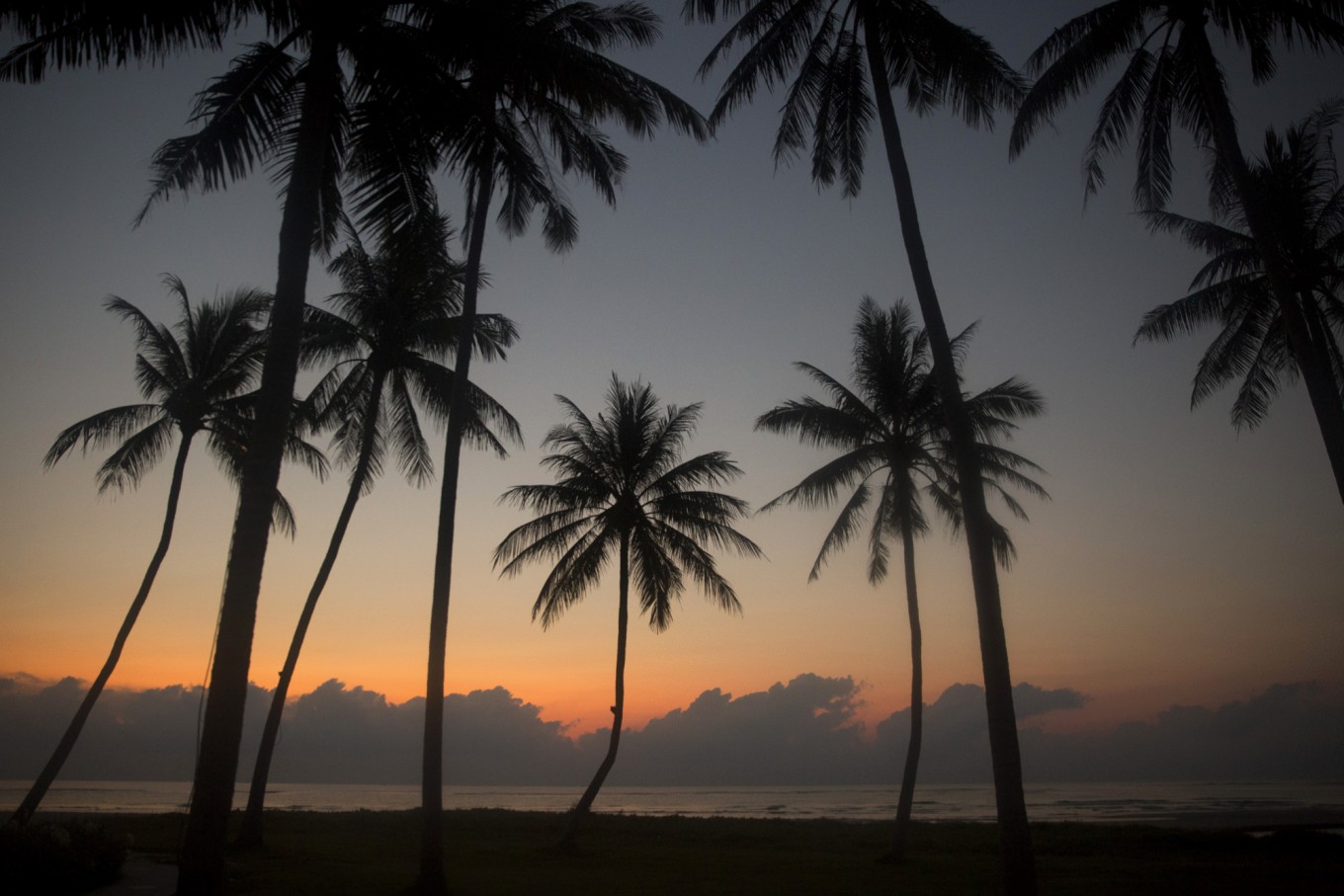Popular Reads
Top Results
Can't find what you're looking for?
View all search resultsPopular Reads
Top Results
Can't find what you're looking for?
View all search resultsNikki Beach wants to remake itself as a chill resort brand
Close your eyes and imagine you’re at a Nikki Beach club—the original in Miami, or perhaps the one in Saint Tropez. What do you see?
Change text size
Gift Premium Articles
to Anyone
C
lose your eyes and imagine you’re at a Nikki Beach club—the original in Miami, or perhaps the one in Saint Tropez. What do you see? Someone spraying Champagne while dancing on top of a bar? Languid couples with bronzed complexions on marshmallowy daybeds? DJs spinning untz-untz beats while servers flit around with trays of sushi?
Now try again. But this time, you’re at a Nikki Beach resort. Instead of turntables, there’s a massage pagoda on the sand; loungers are half-submerged in a serene pool; and rather than the bar, you can meet your friends at the library-like “Soul Lounge” before exploring Greek ruins or Thai temples.
Welcome to the Nikki Beach of the future.
While the 20-year-old nightlife company has no plans to abandon (or slow down) its fast-growing beach club business, it’s also doubling down on Zen-inspired hotels and resorts. It plans to open 20 ultra-chill locations in the next five years in classic and emerging destinations alike—think Santorini, Greece, and Montenegro—throughout the Mediterranean, southeast Asia, and the Caribbean.
“The two concepts [beach clubs and resorts] are extremely symbiotic,” says Alexander Schneider, vice president of Nikki Beach Hotels & Resorts in Europe and the Middle East. “Every person has introvert and extrovert phases. There are hours in the day where we want to show what we’re made of, and hours of the day where we just want to cocoon and read a book,” he tells Bloomberg.
A “disruptive” hotel brand
Deanna Ting, senior hospitality editor at Skift, says Nikki Beach is a ripe entry in the hotel market.
“There aren’t many brands outside of the gaming space—think MGM and Sands—that are combining the pool-party experience with a spa and a retreat where you can recover,” she tells Bloomberg. Its competitors, by comparison, are more urban (W hotels), less global (Gansevoort), or less bohemian in spirit (Soho House and SLS). “There’s definitely an opportunity there,” Ting says.
So far, Nikki Beach has been refining its concept at four locations: Porto Heli, Greece; Koh Samui, Thailand; Bodrum, Turkey; and most recently, in Dubai.
The properties promote more bliss than booze; some don’t have beach clubs at all. Instead, they have such amenities as a Nikki Spa and a healthy all-day dining venue called Café Nikki, which are set to become recurring elements at most Nikki Beach resorts to come.
All four operational properties have four-and-a-half or five-star ratings on TripAdvisor, with only the occasional complaint about Spring Break vibes and sleepless nights. Food quality and service—which Schneider calls brand-defining points of pride—receive mixed reviews, while design and relaxing spaces are cited as the brand’s greatest strengths.
Both qualities play into Nikki Beach’s “celebration of life” ethos. (The brand is an ode to founder Jack Penrod’s daughter, killed by a drunk driver at the age of 18.) “Usually the places that want to be cool make you feel like you have to dress up,” Schneider says. “We want you to just feel very comfortable how and where you are.”
Risks and rewards
According to hospitality branding expert Erich Joachimsthaler, this kind of clear “belief system”—one that fosters an emotional connection for consumers—can guide a brand through unlikely expansions. But he worries the company may limit itself by keeping its clubs and resorts under the Nikki Beach name. A sub-brand strategy allows for greater growth, he tells Bloomberg. Much as “Nikki” has been used on cafes and spas, it could be applied to future projects (e.g., Nikki Resort, Nikki Yacht, Nikki Jet).
Maintaining the desired clientele will also be key to the expansion. “Any particular resort is a function of the people who are there,” Joachimsthaler explains. “I wouldn’t want to show up at Nikki Beach and have a family with kids splashing around me.”
So far, that hasn’t been a problem. The Dubai location, for instance, notched 85 percent occupancy rates in its first year, according to the company, compared to a city-wide average of 65 percent—something Schneider attributes to a large and loyal brand following.
Read also: Belize is not just for backpackers any more
Looking ahead
Nikki Beach’s failed pop-up in the Hamptons this summer proved just how easy it can be to dent a brand’s reputation—and how little margin for error exists in the highly competitive hospitality industry. But Schneider is undeterred. “The world still wants micro-brands that have a soul and aren’t driven by world domination,” he tells Bloomberg.
Still, he sees the company expanding beyond beaches. “I can see a Nikki Beach ski resort,” Schneider muses. “When you think about it, it’s not really about the beach. It’s about people coming together to have a good time.”







